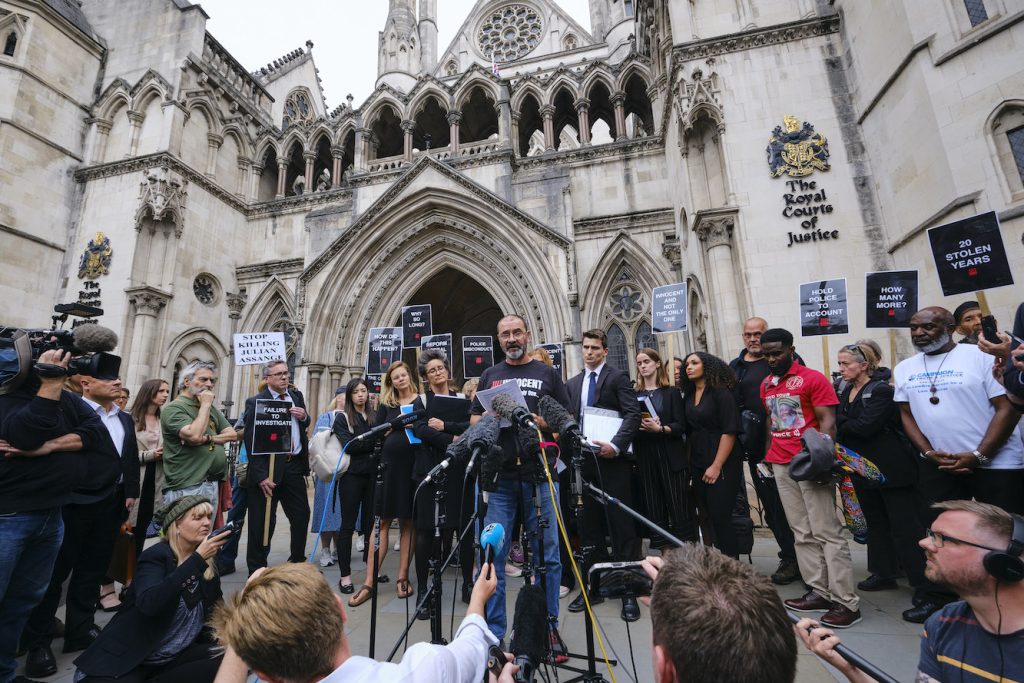The miscarriage of justice watchdog twice failed to arrange DNA testing to exonerate Andrew Malkinson, according to an internal report revealed under freedom of information legislation. In 2012 and 2020, the Criminal Cases Review Commission (CCRC) rejected applications from Malkinson who spent over 17 years wrongly imprisoned for rape and was finally exonerated last summer. So far, the Malkinson furore has prompted two inquiries – one instigated by the CCRC itself and one launched by the justice secretary Alex Chalk. There is also the Law Commission’s ongoing review of the criminal appeals process. Photo: Ben Broomfield
A 2013 internal report shows the CCRC failed to commission DNA tests which could have cleared another man, Victor Nealon (whose case has featured widely in the Justice Gap), a decade sooner. It called for the CCRC to identify similar cases where DNA opportunities might have been missed however the legal charity acting for Malkinson argue this did not trigger new testing in Malkinson’s case.
- You can read a 2015 interview with Victor Nealon here
Andrew Malkinson accused the CCRC of ‘a serious corporate failure at the CCRC’. ‘[Yet] the body’s chair Helen Pitcher still refuses to apologise me. She should be sacked and stripped of her OBE.’ ‘Everyone can see that the CCRC’s failings cost me extra years suffering in prison for a crime I did not commit. A real leader would not be holding back an apology until inquiries spell that out,’ he commented. ‘New scientific discoveries are made every day, yet it did not even occur to the CCRC to use new DNA advances to spare myself and Victor Nealon extra years wrongly imprisoned.’
A February 2013 document (titled the ‘lessons learned review’) produced by the CCRC found that it had failed to commission DNA tests which could have cleared Victor Nealon a decade sooner. According to APPEAL, the report also stated that the DNA evidence which saw Nealon finally cleared of attempted rape in 2013 was ‘discoverable’ by the CCRC during its second review of his case which concluded in 2003.
There are starting parallels between the two cases. Both Nealon and Malkinson spent over 17 years in prison before their respective convictions for attempted rape and rape were quashed; and both were refused parole because they protested their innocence. The prosecution cases against both men relied entirely on highly disputed identification evidence. Both men’s cases were twice rejected by the CCRC and their convictions were eventually quashed after DNA testing commissioned by their lawyers showed another man’s DNA was present in potential saliva staining on the victim’s clothing.
The 2013 report called on the watchdog to conduct a ‘trawl for similar cases’ where DNA evidence opportunities had been missed. In 2014, the late investigative journalist Bob Woffinden wrote an article for Inside Time urging the CCRC to apply the lessons from its mishandling of Nealon’s case to Malkinson’s case. APPEAL reports that in internal case record entries, the CCRC concluded ‘it is not considered there is any reasonable basis for exploring further testing in this case as a result of the Woffinden article’.
The charity points out that the Y-STR and DNA-17 testing techniques which eventually led to Malkinson’s exoneration were ‘both available to the CCRC at the time of its 2018-20 review of his case, having been introduced in August 2012 and July 2014 respectively’.
‘This report reveals the CCRC effectively learnt nothing from its failure to properly investigate Victor Nealon’s wrongful conviction – and Andy Malkinson paid the price in the form of extra years behind bars for a crime he did not commit,’ said James Burley, investigator at APPEAL who obtained the internal CCRC report. ‘The report recommended the CCRC review its handling of similar cases to see if DNA testing opportunities made possible by scientific advances had been missed. Yet this failed to prompt the CCRC to take advantage of new DNA techniques which could have seen Andy Malkinson exonerated years sooner. The CCRC’s report complacently concluded with a ‘high degree of confidence’ that what happened to Victor Nealon could not happen again. Yet the CCRC failed Andy Malkinson in a strikingly similar way.’








